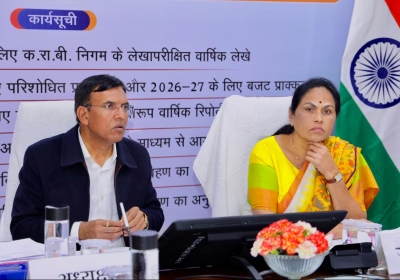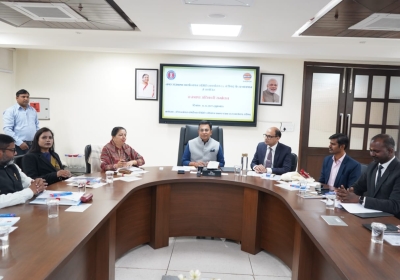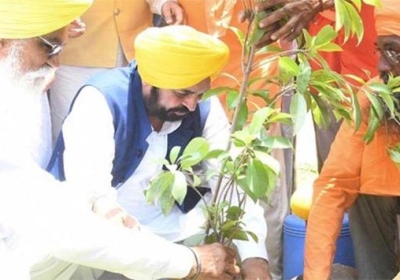
Winter olympics overshadowed by china’s human rights issue.
Winter Olympics surrounded by controversy over China's human rights record
The discussion at the Wukesong Sports Center strayed dangerously away from the growth and speed of women's hockey and onto the issue of political declarations at the Olympic Games. Hilary Knight paused, looked around, and carefully chose her remarks as she finished her fourth Olympic performance for the United States.
Knight said, "I think it's vital to be able to set value on the things that are most important to you, and it's something that is very important to me." Then she shifted gears, stating that the American team's first game was her first priority.
"Right now, we're concentrating on Finland," she explained.
As sports began at a Winter Olympics surrounded by controversy over China's human rights record, the question of what athletes may and cannot say loomed larger than at any other Olympics in recent memory.
Athletes have found themselves caught between campaigners who want them to use their celebrity to speak out and IOC rules that limit what they can say and where they can say it.
Outsiders have criticised China's warnings, notably the US State Department, but China's response has been a deliberate self-censorship within the country.
Some national teams, such as the United States and Canada, have cautioned their athletes that speaking out could result in legal repercussions from both the International Olympic Committee and the Chinese legal system.
On Wednesday, when three New Zealand skiers appeared at a news conference in Beijing, a spokeswoman, Lewis Hampton, cut off a question concerning the regulations on political statements. He stated that the athletes were there to discuss "performance," not protest.
Human Rights Watch's China director, Sophie Richardson, said approximately two dozen Olympic athletes had contacted her to discuss the restriction of free expression in Beijing.
"A lot of people have reached out with questions about what they can say or do, what they're concerned about, and what the authorities' reactions might be," she said. "Either they've never been to China before or they have but aren't sure about the circumstances or the environment," she said.
Questions about China's human rights record have simmered in the run-up to the Games, as they did in the run-up to the 2008 Summer Olympics in Beijing. When Peng Shuai, a prominent tennis player and former Olympian, accused a high government official of pressuring her into a sexual connection last fall, they seemed to take on fresh urgency.
Peng's message quickly vanished from social media, and her location remained unknown, causing uproar around the world. Last month, the Australian Open briefly prohibited T-shirts with the message "Where is Peng Shuai?" before relenting and allowing spectators to wear them.
The question now is whether similar shirts, or other kinds of protest, will make an appearance at the Beijing Olympics.
The limitations of political expression have become increasingly challenged within the Olympic community, a discussion that has heightened with the Games in China, which consistently ranks among the world's most oppressive countries in surveys on political, religious, and other freedoms.
Athletes and other participants are prohibited from protesting or displaying "political, religious, or racial propaganda" at Olympic events, according to Rule 50 of the Olympic Charter. The 1968 Summer Olympics in Mexico City were a well-known example of when it was used. After raising their fists on the medals podium during the singing of the US national anthem, American sprinters John Carlos and Tommie Smith were ejected from the Games.
The regulation was subsequently relaxed to allow athletes to voice their opinions in Olympic villages and surroundings, as well as on now-common social media platforms, but not during games or medal ceremonies. In 2020, the US Olympic and Paralympic Committee went even farther, announcing that athletes who participated in nonviolent protests would no longer be penalised.
The restriction was justified by Thomas Bach, the president of the International Olympic Committee, who said athletes should not disturb an Olympic event any more than a Shakespearean actor would interrupt a performance of "Hamlet" to make a political statement.
"You have to observe the regulations when you participate in an event - whether you're an actress in a theatre or an athlete in a Games," he remarked.
Political activism has surfaced at numerous major events, including last summer's Tokyo Olympics, but no other host nation has been as severe in regulating political opposition as China.
The Chinese Communist Party has suppressed political liberties in Hong Kong and Tibet, as well as a mass incarceration and reeducation campaign against Uyghur Muslims in Xinjiang's western area, which the US has labelled genocide.
Athletes, sponsors, and advertising have been urged to voice out by China's opponents. Silent protests, such as skipping the opening ceremony, have been advocated by some.
The Council on American-Islamic Relations, an advocacy group, said in a statement, "We urge Olympic athletes to use every opportunity to exercise their internationally recognised right to free speech and speak out against the Chinese Communist Party's ongoing genocide of Uyghur Muslims."
The group referred to the 86th Summer Olympics, which were hosted in Adolf Hitler's Germany. "The international community must avoid a repeat of the 1936 Olympics, when a cruel dictatorship exploited the games to conceal its crimes against humanity."
In fact, even among those who identify with human rights problems, Olympic athletes rarely protest. Most athletes are passionate to their sport and have put in years of training in order to compete at the greatest level.
According to a survey conducted by the International Olympic Committee last year, about two-thirds of athletes felt that demonstrating on the medals podium is "not suitable." Even more vehement anti-competition protests took place before the opening ceremony or during the competitions itself.
Rule 50 was "not compatible with the human rights of athletes," according to EU Athletes, a federation that claims to represent more than 25,000 elite athletes in Europe.
"It is just unacceptable that a sport organisation can restrict or redefine an athlete's human rights," the group stated.
The organisers of Beijing 2022 have vowed to uphold the Olympic Charter's spirit of free expression. Authorities have constructed an open internet free of Chinese censorship within the "closed loop" bubbles erected around Olympic venues.
"Athletes are role models for the rest of the world, and they receive a lot of attention," Yang, a Beijing Olympic official, said. "They have their opinions, and it's crucial that they share them."





